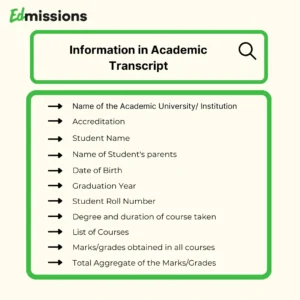
If Trump’s proposed new U.S. census excluding undocumented immigrants moves forward (even if symbolic or temporary), it could impact international students in indirect but meaningful ways—especially in terms of funding, immigration climate, and state policies. Here’s a breakdown of the possible effects on international students studying in the U.S.:
1. Indirect Funding Reductions Could Affect Services at Public Universities
-
The U.S. Census is used to allocate federal funding for education, healthcare, transportation, and student services.
-
If undocumented immigrants are excluded, states with large immigrant populations (like California, New York, and Texas) might receive less funding.
-
That means public universities in those states could face budget cuts, affecting:
-
International student programs
-
Campus employment opportunities
-
Housing and support services
-
Scholarships and assistantships
-
Example: A state like California, home to thousands of international students, could lose millions in funding—impacting services you might depend on.
2. Political Climate Could Shift Toward Harsher Immigration Policies
-
This move signals a hardline stance on immigration, even if it mainly targets undocumented individuals.
-
In this environment, international students might face:
-
Stricter visa scrutiny
-
Increased delays in visa processing or renewals
-
Tighter rules for Optional Practical Training (OPT) and H-1B transitions
-
-
The perception of being “foreign” could make day-to-day life more uncertain or stressful.
Think of it like this: Even if you’re legal, being in a storm of anti-immigrant rhetoric can make the skies feel cloudier for everyone.
3. State-Level Policy Shifts Could Affect Tuition and Benefits
-
If the census undercounts immigrants, states may lose House representation and education grants.
-
Some states could react by tightening access to in-state tuition discounts, health programs, or even transportation passes for international students.
-
Budget shortfalls might also lead to tuition hikes, which would hit international students—who already pay full fees—the hardest.
4. Social & Campus Climate May Shift
-
A nationwide narrative that excludes certain groups may lead to increased social division.
-
Some students might face discrimination or hostility, especially in conservative or rural areas.
-
Support networks for international students might weaken as universities stretch resources.
It’s not all bad news though: Many universities actively support diversity and could ramp up protections for international students as a counterbalance.
5. Legal Confusion and Travel Anxiety Could Increase
-
If the definition of “who counts” in the U.S. keeps shifting, it creates uncertainty for everyone not holding a green card or citizenship.
-
Students may feel less confident traveling in and out of the U.S., unsure how future executive actions might impact:
-
Re-entry after visiting home
-
Visas tied to census data
-
Post-graduation immigration plans
-
Summary: What Should International Students Do?
| Concern | What You Can Do |
|---|---|
| Reduced university funding | Stay informed on your school’s budget updates |
| Visa insecurity | Maintain clear documentation and legal compliance |
| Social climate changes | Connect with campus international support centers |
| Policy shifts | Follow updates from USCIS & Department of State |
| Travel issues | Speak to your DSO (Designated School Official) before making trips |
Helpful Links for Staying Updated:
-
U.S. Citizenship and Immigration Services (USCIS): https://www.uscis.gov
-
Department of Homeland Security International Student Portal: www.dhs.gov
-
NAFSA: Association of International Educators: https://www.nafsa.org
Final Thought
While Trump’s proposed census changes directly target undocumented immigrants, international students are not the target—but the ripple effects could absolutely reach you. From funding to atmosphere, it’s wise to stay alert, proactive, and connected to campus support.
Would you like a newsletter-style update to send to students or a university blog post version of this?







